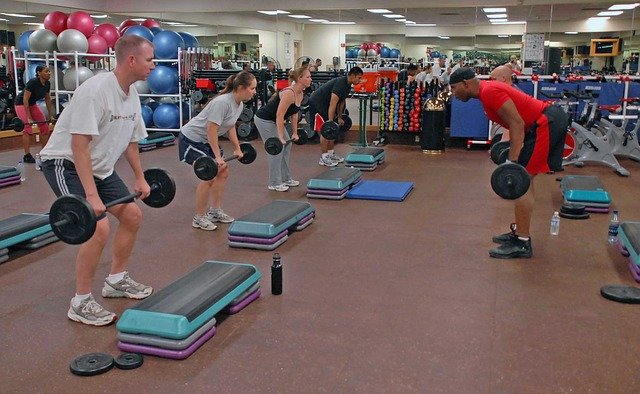
In a recent study, researchers at Wake Forest University find that for older adults trying to slim down, weight training combined with a low-calorie diet is better for older people to lose weight.
This is because weight training can preserve much needed lean muscle mass that can be lost through aerobic workouts.
Losing weight is generally recommended for those with obesity, but preserving muscle – while losing fat – is particularly important for older adults to maximize functional benefit.
A lot of older adults will walk as their exercise of choice, but this research shows that if you’re worried about losing muscle, weight training can be the better option.
In the study, the team recruited 249 adults in their 60s who were overweight or obese.
The participants were randomly assigned to one of three groups: a weight-loss-diet-only group, who followed a calorie-restricted diet with no exercise regimen; a weight loss diet plus cardio (i.e., walking) group; and a weight loss diet plus weight-training group.
The researchers found that total fat loss was much greater when participants combined diet plus walking (about 16 pounds) and diet plus weight training (about 17 pounds).
Diet alone resulted in about 10 pounds of fat lost over 18 months.
Moreover, muscle mass loss was greatest with diet plus walking (about 4 pounds) compared with diet alone or diet plus weight training (each about 2 pounds).
Put another way, the percentage of weight loss coming from muscle mass was 20% in the diet plus walking group, 16% in the diet alone group, and 10% in the diet plus weight training group.
This means the participants had less muscle loss, but significant fat loss, when compared to weight loss plus walking or weight loss alone.
Surprisingly, the researchers found that cardio workouts may actually cause older adults with obesity to lose more lean mass than dieting alone.
Loss of lean mass could have important consequences given the high risk of physical disability among the growing population of older adults.
For example, loss of fat was associated with faster walking speed, while loss of muscle was associated with reduced knee strength.
The researchers say that their results may be even more important for older adults who gain and lose weight with frequency.
This is because seniors typically don’t regain muscle – they regain fat mass – which is all the more reason for older adults to try and preserve muscle mass during weight loss.
Kristen Beavers, assistant professor of health and exercise science at Wake Forest, is the lead author of the study.
The study is published in the November issue of the journal Obesity.
Copyright © 2018 Knowridge Science Report. All rights reserved.



